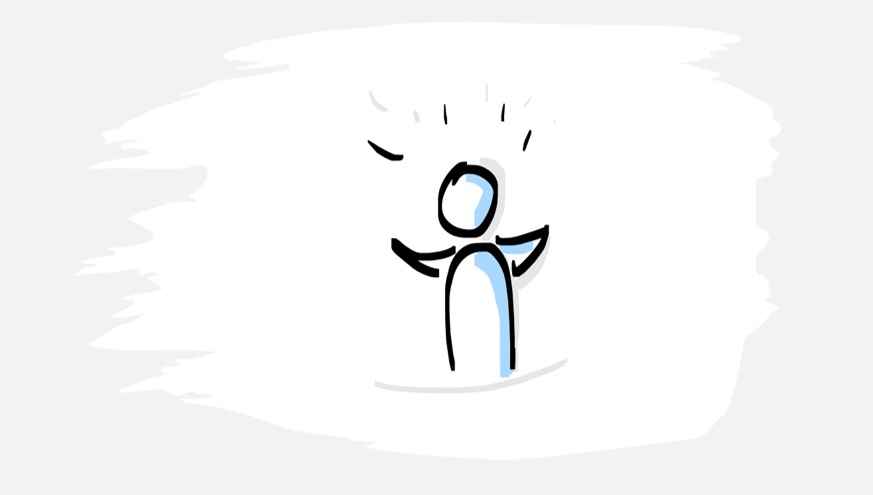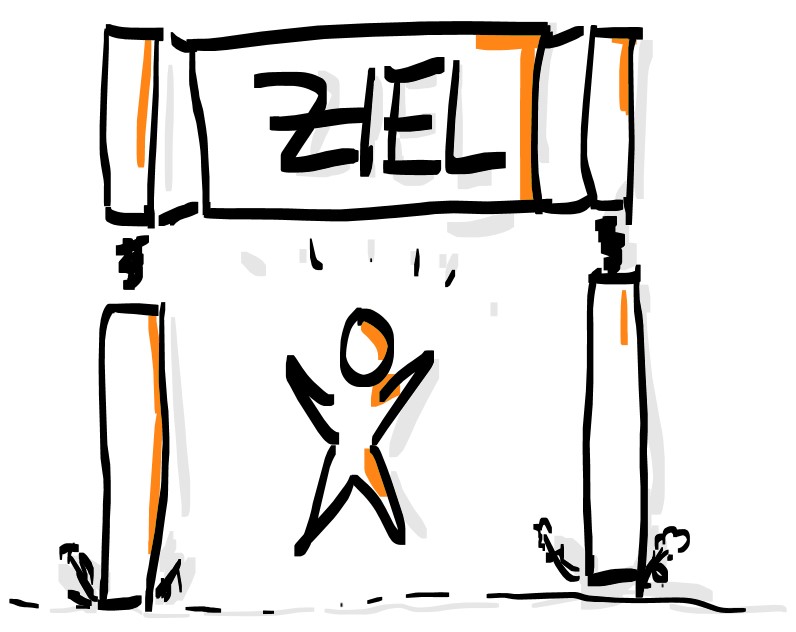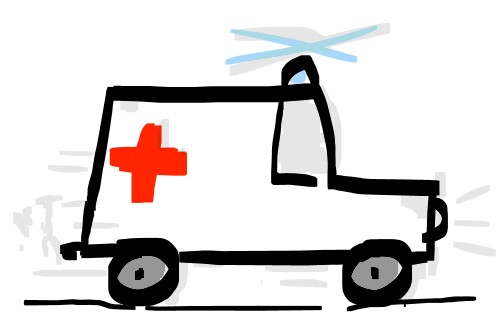These are times of constant demand. For our daily routine, the same applies to our life in general: Scheduled from dawn to dusk! Foreign languages in kindergarten, career orientation in elementary school, university for minors, graduating quickly – with a semester abroad. Starting the job of our dreams, earning our first professional honors, then making a career for real. Along the way, we find our dream partner and start a family.
All done right?

A generally applicable principle of maximization ensures, that all areas of life are thoroughly economized. “As much as possible!” is the (rarely questioned) motto.
Consequently, an efficiency dictate drives us to always weigh all options to decide right at the right time. We research and analyze non-stop, make decisions and plan our hours, days, weeks, months, and even years: leave nothing to chance, rule out mistakes!
Our success proves us right: Everything done right!
After all, we are sitting at the well-paid, responsible workplace. Why, though, do we sit there with a stale and tired feeling more and more often? Are we missing something? What?
Happily reaching the goal
Achieving goals is a great feeling. We dig in, push ourselves hard, and sometimes even outgrow ourselves. Of course, to perform in this way, we need to be challenged. The best way to do this is to push ourselves to the limits of our abilities without exceeding them. Because in this way we activate all our forces ideally, combine them creatively and flexibly and use them purposefully.
We are rewarded with the satisfying feeling of controlled self-efficacy – the basis for lasting performance and satisfaction.
The problem: Both only occur under certain circumstances: first, it requires emotional (!) meaning. And secondly, we need to be able to sense emotions.

Emotional meaningfulness
always arises situationally in a mixture of individual values, needs, and current requirements. In this context, non-material or social motivators often play a more decisive role than existential rationales.
More than anything, however, we are often unaware of this process.
In general, we are mostly unaware of the many physical and psychological “programs” that drive us to push ourselves.
But it is certain: It is never an “external” or universal, but always a specific motivator that comes from within ourselves and from our history. And also applies only to us.
When we exert ourselves over a long period of time
we are less able to feel and show compassion – even towards ourselves. Also responsible for this are the many, partly archaic body reaction patterns, which we are also rarely aware of. And which we can only influence to a limited extent.
Their goal is to focus all our energies on the task at hand. Only after we have mastered it, we can be happy about the success or angry about the failure in the following recovery phase. And only then can we regenerate.
Then we are tired. And satisfied accordingly, depending on the success and meaningfulness of the task.
 Alarm!
Alarm!
If one stress phase follows the other without a break, we find ourselves in a state of permanent tension.All bodily functions then remain in concentrated tension.
Literally and metaphorically, we then develop a persistent and focused tunnel vision, which manifests itself, among other things, as: shallow breathing, tense muscles, blood in arms and legs (instead of, for example, in the brain), lowered sensitivity to pain, and reduced empathy.
In such situations, we then often say, “Gotta do it!”, “Doesn’t help!” or “Close your eyes and get through it!”
Most importantly, the metabolism is adjusted
which significantly controls the processes in the brain. Our perception and our thinking change, among other things, with the result that we use older and proven patterns of thought and action, which we can use more or less automatically.
In other words: We are no longer master of all our senses, our possibilities are limited enormously
Long exhausting phases therefore not only ensure that we constantly lose strength and we become more tired as a result. Inevitably, we also lose creativity, flexibility, and self-control.
In addition, our personality changes because we focus, think, feel and act differently. We are prone to overacting and blackouts.
Always stay loose
This procedure applies not only to individuals but also to teams, groups, companies, and even societies.
Whoever wants to establish the greatest possible performance, competence and satisfaction for himself and his environment in the long term, therefore basically ensures that exhausting phases are followed by breaks and relaxing times
There are many practical tips to introduce effective breaks in everyday life and thus keep “fit” (see literature references).
However, it is especially important to get to know one’s own stress patterns – including appropriate measures to deal with them well if the situation arises.
For anyone who wants or needs to keep teams and organizations in good, high-performing shape
agile organizational approaches could also be useful. After all, their explicit goal is to prevent structural overload and ensure the greatest possible performance capability and satisfaction.
In Scrum, for example, all measures are focused on creating organizational (!) meaning, to query individual and organizational performance limits and to operate within them, and to create an alternation of tension and regeneration through fixed rhythms and time windows for certain work.
Whatever measures you choose to remain efficient, satisfied, and healthy, one thing you will always do: constantly observe, question, and readjust yourself and others.
In this sense: Take care! In this case, you have already done (almost) everything right!
Something to Read?
- Kabat-Zinn, Jon: Meditation for Optimum Health: How to Use Mindfulness and Breathing to Heal Your Body and Refresh Your Mind
- Kahneman, Daniel: Thinking, Fast and Slow
 Alarm!
Alarm!